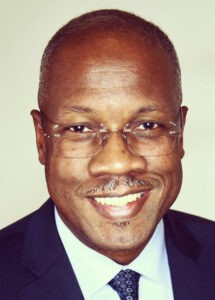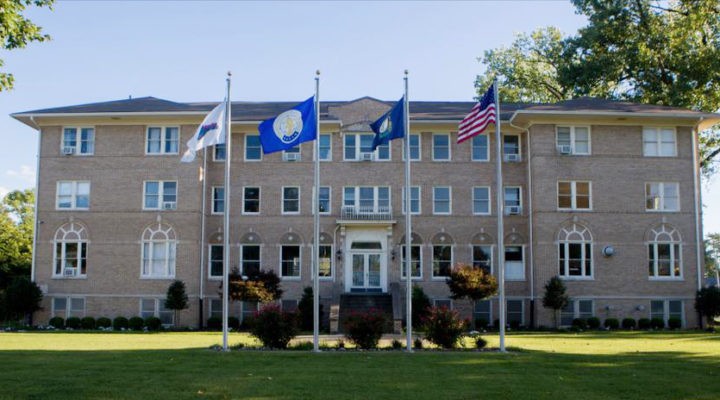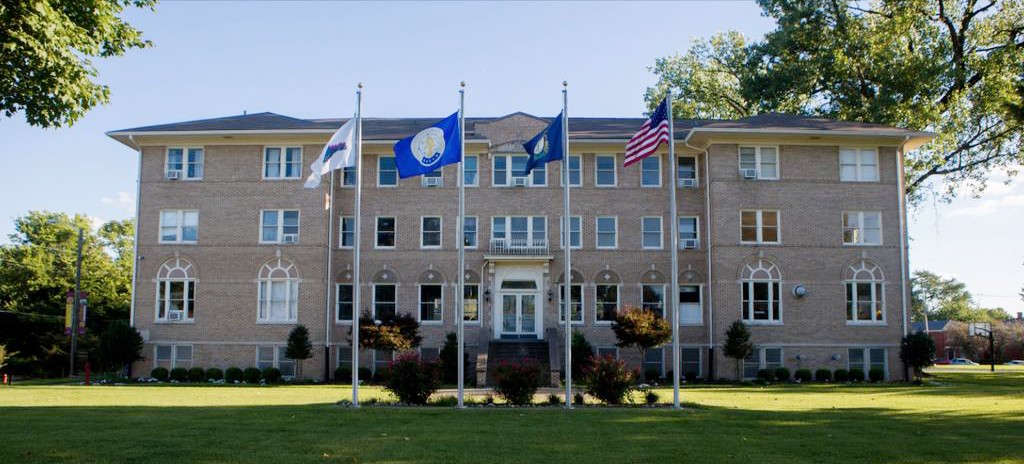Students at Simmons College of Kentucky are breathing healthier air and bearing an easier financial burden thanks to federal funding provided through coronavirus relief legislation.
This historically Black college in Louisville, Ky., has received about $9 million in federal COVID-19 relief funds since the pandemic began, said Frank M. Smith Jr., the school’s executive vice president and chief operating officer. More than two-thirds of that amount, about $6.4 million, is from the American Rescue Plan, which became law in March 2021.
The funding helped Simmons improve its HVAC and ventilation systems to inhibit the spread of the coronavirus. It also provided financial aid to students for tuition and living expenses and helped the school pay for COVID-19 testing. In addition, the school used the funding to implement remote learning opportunities and educate students about safety protocols and vaccinations.

Frank M. Smith Jr.
Historically Black Colleges and Universities qualified for specific federal programs for COVID-19 relief because African Americans are experiencing the pandemic’s ill effects so acutely, Smith said. He called the funding a “saving grace” for Simmons and its students.
“What these resources are primarily designed to do is to keep students who attend HBCUs enrolled, so they do not, because of challenges with home, family or whatever else, fall off the radar during this COVID period,” he explained.
Simmons is among more than 100 HBCUs in the United States. While HBCUs account for only 3% of U.S. colleges and universities, they produce 20% of all Black college graduates, according to the United Negro College Fund. Among Black doctors, lawyers, teachers and STEM professionals, an outsized proportion hold degrees from HBCUs.
Many African Americans who attend Simmons and other HBCUs have not been well served by their K-12 education and enter college underprepared, Smith said. “They have not understood who they are very well. They have not understood their history as motivational to their learning capacity.”
HBCUs, he noted, provide Black students nurture, challenge and a familiar cultural context. “What HBCUs do is that they allow students, Black students in particular, to come to an environment where they do not have to understand education through the lens and filter of a different racial persuasion or perspective. They are able to learn through the context of their own culture.”
Founded in 1879 by formerly enslaved people, Simmons grew into a comprehensive institution of higher learning, which included schools of law and medicine. However, the financial challenges of the Great Depression forced Simmons to sell its property and close every program except its theological department. For several decades, it was known as Simmons Bible College.
In 2005, Kevin Cosby, pastor of Louisville’s St. Stephen Baptist Church, became president and began a push to offer a wider variety of majors and reclaim Simmons’ general education mission. The school moved back to its original campus in 2007, which had been purchased in the 1990s by St. Stephen Church.
Under Cosby’s leadership, Simmons obtained accreditation, which is a requirement for recognition as an HBCU by the U.S. Department of Education. Simmons received its HBCU designation in 2015, making it eligible for federal funds appropriated specifically for HBCUs.
Throughout its history, Simmons has maintained ties with the body that give it birth, the General Association of Baptists in Kentucky. In recent years, the National Baptist Convention of America, International, made Simmons its official college.
The NBCA’s headquarters are on the Simmons campus, and Simmons provides classroom space to Baptist Seminary of Kentucky and houses BSK’s Institute for Black Church Studies.
Related articles:
HBCUs urge Congress to see infrastructure funding as a justice issue
Historically black college to become home to CBF seminary
Southern Seminary leadership nixes idea of reparations for historically Black college


